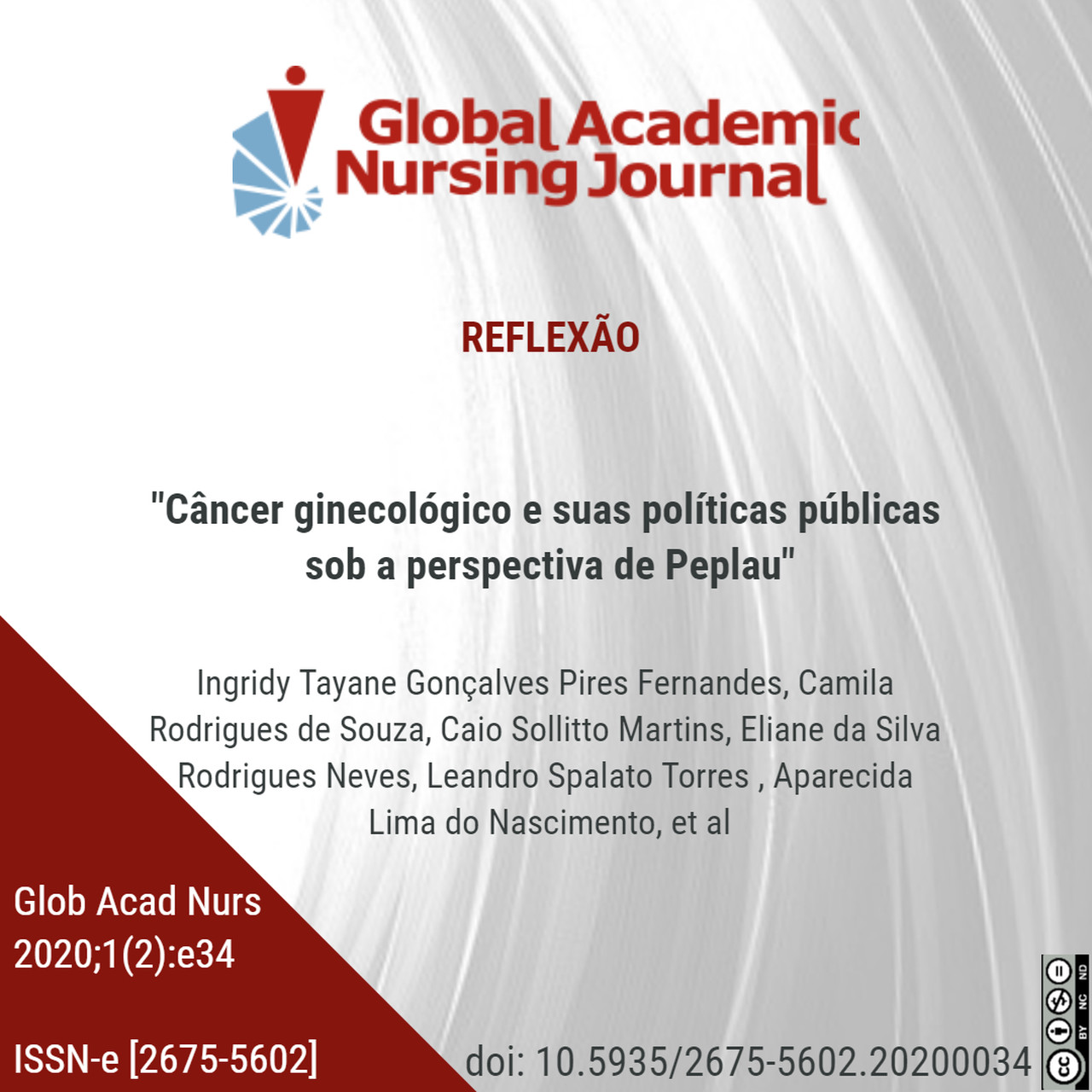Abstract
When paralleling the Interpersonal Theory with public health policies in Brazil and the assistance to women in health promotion, prevention or treatment of gynecological cancer, it is reflected that gynecological cancer in women is seen by the woman herself as a part of your self, is your femininity, your identity; concepts which are deeply crushed by the news of a cancer diagnosis. In view of the exchange of experiences at the time of assistance, Peplau states that the assistance and the relationship of those involved are influenced by the external environment (environment), internal environment (personality, lived experiences, religion, culture) and the professional's posture. In this scenario of a fragile and frightened woman, often without due privacy or attention due to the lack of inputs, structure and high demand from the public health service in Brazil, her assistance can be compromised, precisely because she does not have interpersonal skills, either in promotion health, prevention or treatment. It can be said that information is a precious asset when it comes to health care. In addition to the correct information, the nursing professional and the others who form the multidisciplinary team need to have an empathetic, humanized, welcoming attitude, based on science, ethics and respect for the woman's life, in order to pass the correct information in the correct way for greater adherence. Given “golden assistance”, it is only possible based on public training policies for its employees, which certainly not only update and train professionals, they save lives.

